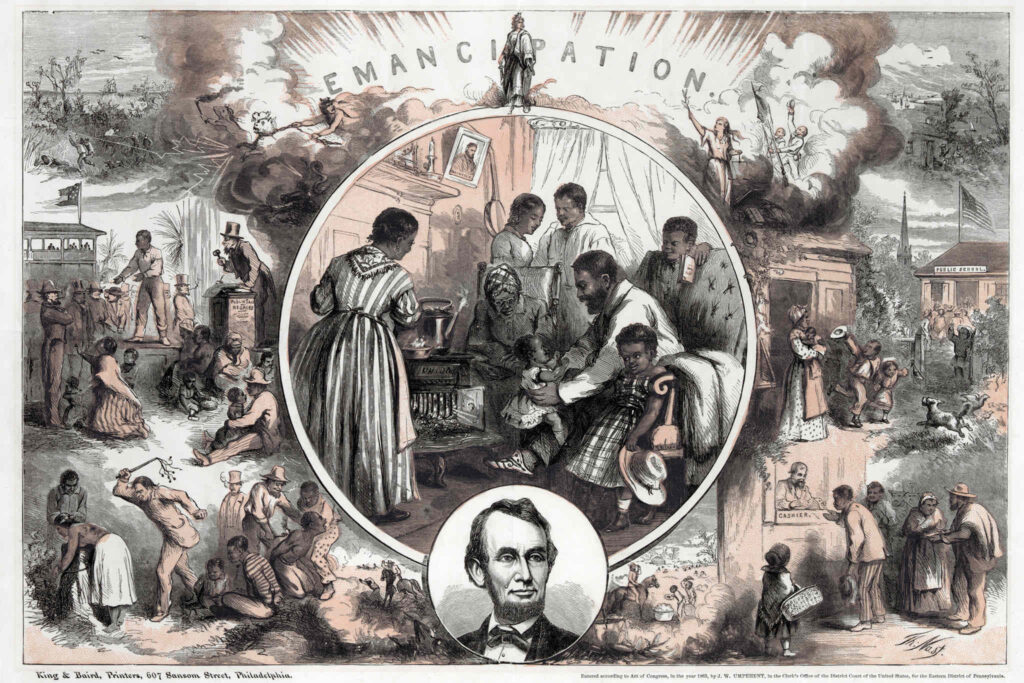The 13th, 14th and 15th Amendments - Congress investigates the KKK

For more resources on how to teach about race in the classroom, visit Race Talk: Engaging Young People in Conversations about Race and Racism from the Anti-Defamation League or the Black History Framework from Dr. LaGarrett J. King.
Lesson Plan
Our three-day inquiry lesson plan will teach students about the groundbreaking work of the Congressional investigation into the Ku Klux Klan conducted during Reconstruction. Students will orient their work around the compelling question “Is it worth it for Congress to investigate problems?”
This free download includes:
- Lesson plan
- Primary sources
- Student worksheets
- Answer key

Emancipation of the Negroes. 1865. Library of Congress / Detroit Publishing Co.
Video
We’ve partnered with Detroit PBS to bring you our Portraits in Oversight video series. Our video on Congress’ Investigation of the Ku Klux Klan is designed for use in the classroom and features expert commentary.
Neither slavery nor involuntary servitude, except as a punishment for crime whereof the party shall have been duly con-victed, shall exist within the United States, or any place subject to their jurisdiction.
Section 1, 13th Amendment (ratified December 6, 1865)
The end of the Civil War marked the beginning of radical change in the United States with the country taking action to recover from years of war, recognize the rights of four million formerly enslaved people, and protect African Americans from a violent backlash against their new status. During the 1870s, in a period now known as Reconstruction, Congress launched two extensive investigations into a frightening new organization, the Ku Klux Klan, exposed how it was terrorizing African Americans and their political allies in the South, and supported legislative and administrative actions to curb its brutality and lawlessness.
In the years following the Civil war, Congress enacted laws that represented the most significant advances in civil rights since the nation’s founding. This included the 13th, 14th, and 15th amendments. As a result of these new laws, African Americans flooded onto the voter rolls. At the same time, racial violence in the former Confederate states accelerated. Many attributed the escalating violence to the growing strength of the Ku Klux Klan. Congress decided to form an investigative committee to dig into the facts.
Content Standards
MI USHG – F1.1 Identify the core ideals of American society as reflected in the documents below, and analyze the ways that American society moved toward and/or away from its core ideals:
- Declaration of Independence.
- Original United States Constitution (including the Preamble).
- Bill of Rights.
- Gettysburg Address.
- 13th, 14th , and 15th Amendments
MI Civics – 4.2.3 Using the 14th Amendment, describe the impact of the doctrine of incorporation, due process of law, and equal protection of law on the articulation and extension of rights.


